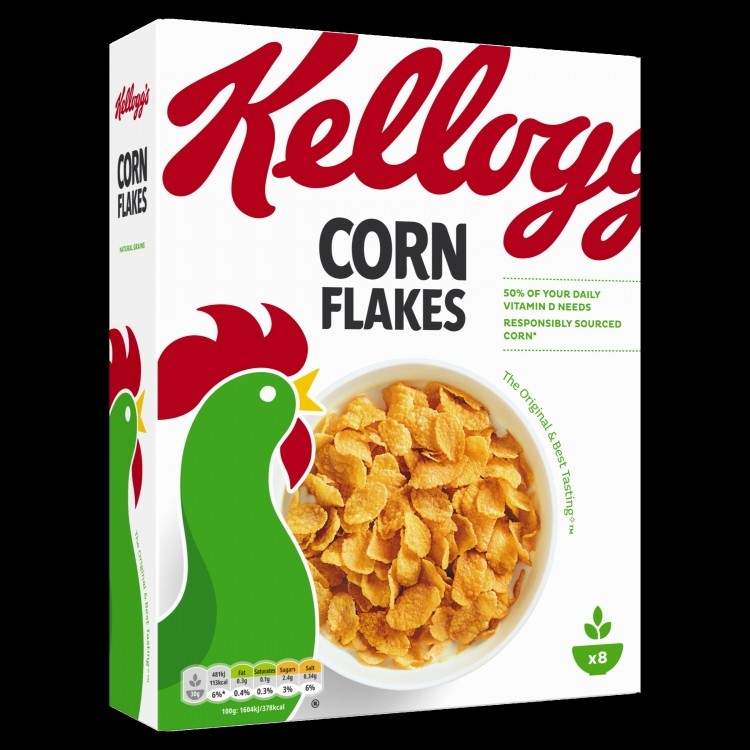Kellogg’s moves to responsibly sourced Corn Flakes

The cereal company has verified that environmental and social best practices have been implemented by the farmers and suppliers who provide the corn for Kellogg’s Corn Flakes.
Corn is the main, of only four, ingredients in the cereal and is a special variety grown by farmers in Argentina, where the conditions are ideal for this crop to thrive.
Kate Prince, Kellogg’s corporate social responsibility manager, UK and Ireland said: “We know people are interested in where their food comes from and want it to be sourced responsibly. Kellogg’s wants to demonstrate our natural credentials more clearly, to help shoppers understand what’s in each box of our cereal.
“And it’s not only what’s in the box that’s important. The very first box of Kellogg’s Corn Flakes was made of 100 per cent recycled carton in 1906. And, today 100 per cent of the timber-based packaging in Europe comes from sustainable sources and 70 per cent of our cardboard is made from recycled material. This is another way of looking after the environment.”
Kellogg's said the move will not impact the price of Corn Flakes in Europe and the UK.
- 67 million packs of Kellogg’s Cornflakes are produced every year on average at the Kellogg’s Manchester factory for the UK market
- 28 million bowls of Kellogg’s Corn Flakes are eaten every day in the UK – one billion bowls a year
Kellogg said the move to include responsibly sourced corn in its Corn Flakes cereal is part of the company’s broader global sustainability goal of responsibly sourcing its 10 priority ingredients by the end of 2025. In addition to corn, the company’s priority ingredients include wheat, rice, potatoes, sugar beets, sugar cane, fruits, palm oil, vanilla and cocoa.
The criteria to determine how the corn is responsibly sourced are grouped into three categories: environmental, social and governance criteria.
Kellogg said it has developed a standard for verifying that responsible farming practices are in place for each set of criteria, and has based its standard on those used by well-recognised industry groups, in addition to working with two international non-governmental organisations who helped us ensure that we focused on the right criteria.
The environmental criteria include:
- 100% of the acres used to produce corn for Kellogg’s Corn Flakes are measured against these criteria, with the goal of demonstrating continuous improvement
- The farmer has implemented conservation practices, including conservation tillage, cover crops, buffer strips and conservation irrigation practices.
- All farmers must have an integrated pest management plan, be committed to zero deforestation and have 100% legal right to farm the lands.
- The farmer must have conducted an Environmental Risk Assessment.
The social criteria include:
- 100% of the workers on the farm have access to regular health and safety training
- 100% of the farmers use personal protective equipment
- All suppliers have signed the Kellogg Code of Conduct
It added: “Our regional corn supplier and partner DACSA also played a crucial role in ensuring that the farmers they work with embrace the best practices for growing responsibly sourced corn and meet the criteria to be labelled as such.”




















